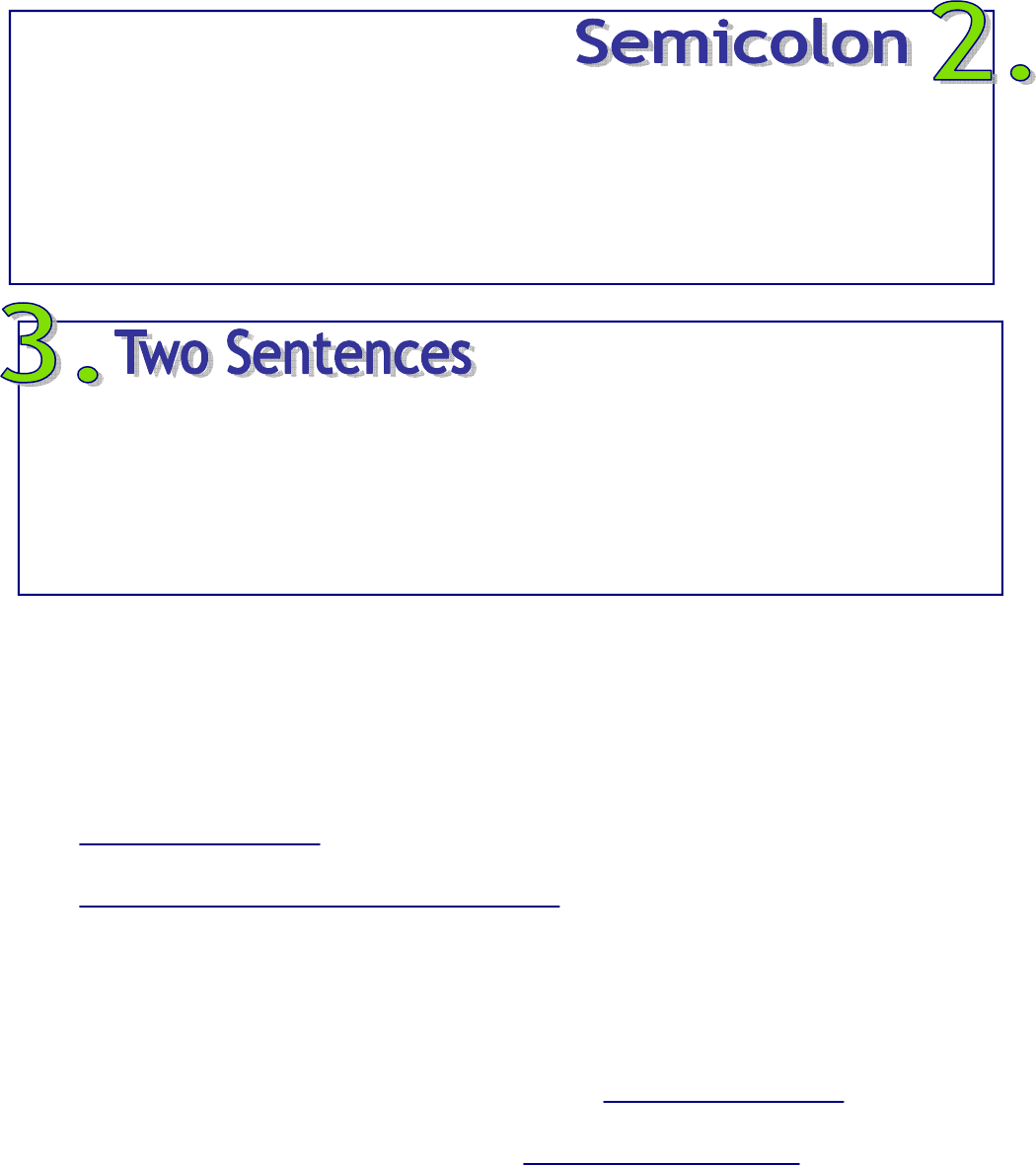
WHAT IS A CLAUSE?
A clause is a group of words in a sentence that contains both a subject and a predicate. A subject
is a noun or a pronoun that is the “doer” of the action in the sentence. A predicate is the part of
the sentence that contains the verb and other elements that modify the subject.
An independent clause is also known as a main clause. An in-
dependent clause is a group of words that contains both a sub-
ject and a predicate and can stand alone as a complete sen-
tence. The following are examples of independent clauses:
Sofiya enjoys scrap booking.
Green is my favorite color.
•
An independent clause may also be part of a complex sentence. A complex sen-
tence consists of an independent clause and one or more dependent clauses.
The following are examples of complex sentences:
Jamie loves to write short stories.
SUBJECT
PREDICATE
Green has been my favorite color
INDEPENDENT DEPENDENT
since I was seven years old.
I forgot to buy milk while I was at the store.
INDEPENDENT DEPENDENT

A dependent clause is also known as a subordinate
clause. A dependent clause cannot stand as a complete
sentence on its own. When standing alone, it is just
considered a sentence fragment. It “depends” on an
independent clause to complete its meaning. The fol-
lowing are examples of dependent clauses:
•
Here is an example of a dependent clause found at the end of a sentence:
Note: Often dependent clauses will start with the following words: after, although, as, because,
before, even though, if, though, unless, until, when, whenever, and while.
Before I left the house this morning, I ate breakfast.
When I arrived at the building, I noticed that no one was there yet.
I always enjoy munching on popcorn while I am at the movies.
There are three ways to connect independent clauses:
•
Combine two independent clauses by using a comma before a coordinating
conjunction. The seven coordinating conjunctions are: and, but, for, or,
nor, so, and yet.
Mary went to the grocery store this afternoon
, and
she purchased food
for tonight’s dinner.
Tom didn’t have enough time to finish his exam
, for
his class was only an
hour long.

Combine two independent clauses by using a semicolon between them.
Mary went to the grocery store this afternoon; she purchased food for to-
night’s dinner.
Tom didn’t have enough time to finish his exam; his class was only an
hour long.
Combine two independent clauses by creating two separate sentences.
Mary went to the grocery store this afternoon. She purchased
food for tonight’s dinner.
Tom didn’t have enough time to finish his exam. His class was only an
hour long.
There are two ways to form complex sentences:
♦
To connect a dependent clause to the beginning of a sentence, just add a
comma before the independent clause:
During the semester, I always have several papers to write.
Knowing that she didn’t have time to go, she kindly declined the invitation.
♦
To connect a dependent clause to the end of the sentence, just add it on
after the independent clause without a comma:
My mom always hangs her keys by the door when she gets home.
I always enjoy munching on popcorn while I’m at the movies.
Last modified 8/11/11
